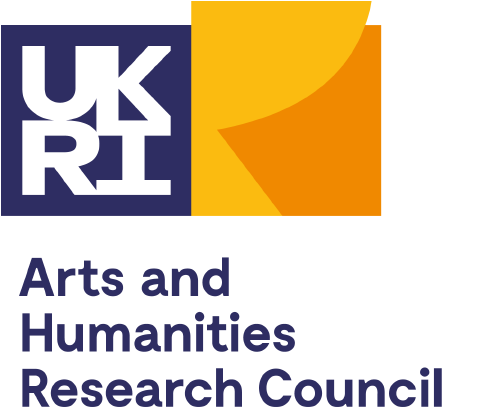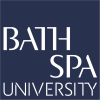Guest Blog by Dr Louise Maythorne, Knowledge Exchange Manager, Bath Spa University
Arts and Humanities researchers up and down the country have been cheering the arrival of the AHRC’s first ever Impact Accelerator Accounts. The AHRC are investing £5m over the next three years to support the brightest and most impactful applications of research making awards to 32 different Universities across the UK.
 Arts and Humanities researchers up and down the country have been cheering the arrival of the AHRC’s first ever Impact Accelerator Accounts. The AHRC are investing £5m over the next three years to support the brightest and most impactful applications of research making awards to 32 different Universities across the UK. Building on a model already adopted by the ESRC these Universities are then organised into six networked clusters of geographical proximity with the aim of building relationships and shared learning within and between institutions. The participation of AHRC in UKRI’s newly harmonised approach to IAAs represents a significant boost for research translation in the arts and humanities at a time when the focus on knowledge exchange across all disciplines has never been sharper.
Arts and Humanities researchers up and down the country have been cheering the arrival of the AHRC’s first ever Impact Accelerator Accounts. The AHRC are investing £5m over the next three years to support the brightest and most impactful applications of research making awards to 32 different Universities across the UK. Building on a model already adopted by the ESRC these Universities are then organised into six networked clusters of geographical proximity with the aim of building relationships and shared learning within and between institutions. The participation of AHRC in UKRI’s newly harmonised approach to IAAs represents a significant boost for research translation in the arts and humanities at a time when the focus on knowledge exchange across all disciplines has never been sharper.
 At Bath Spa University we are happy recipients of our first IAA and, given our strengths in the arts and humanities we are thrilled to have this endorsement from the AHRC and have planned a programme of work designed to broker new conversations, enhance our impact culture and amplify the impact of the work we do. Our Account will offer three themed funding calls, Postdoctoral and ECR Impact Fellowships, ringfenced funds for interdisciplinary projects, and a substantial training programme. The overall programme of activity will be steered by three Advisory Forums centred on creative practitioners, policy engagement and community. Underpinning the entire scheme is a commitment to equity and reciprocity - aspects of partnership working that are so hard to deliver without funding to support them.
At Bath Spa University we are happy recipients of our first IAA and, given our strengths in the arts and humanities we are thrilled to have this endorsement from the AHRC and have planned a programme of work designed to broker new conversations, enhance our impact culture and amplify the impact of the work we do. Our Account will offer three themed funding calls, Postdoctoral and ECR Impact Fellowships, ringfenced funds for interdisciplinary projects, and a substantial training programme. The overall programme of activity will be steered by three Advisory Forums centred on creative practitioners, policy engagement and community. Underpinning the entire scheme is a commitment to equity and reciprocity - aspects of partnership working that are so hard to deliver without funding to support them.
The first of the strands of funding is ‘KE Dialogues’ designed to support partners in establishing their relationship and granting them the time and space to plan out a project together. Partnership creation and project development, particularly when working with micro or SME businesses and charities, often supposes that the non-academic partners can afford to invest their time for free while the University partner is paid to be there. This funding scheme addresses this imbalance and ensures that travel costs, staff time and other expenses are equitably paid for while new dialogues are being nurtured.
The second strand is a Rapid Impact Fund, designed to allow researchers to respond to serendipitous, spontaneous and fleeting opportunities to capitalise on the impact of their work. This format also encourages innovative, experimental and original approaches to impact and characterises the agility for which IAA funding is prized.
The third stream of funding is for the responsive mode Leading Impact Fund. Supporting larger projects with more established partners there will be a particular focus on the evaluation of impact within projects and the development of novel methodologies for the assessment of that impact. Colleagues working in KE at the moment will recognise that capturing and quantifying the impact of arts and humanities research looms large in Research England’s Review of Knowledge Exchange Funding and HESA’s review of HE-BCI. We intended to use our role as South West hub for NCACE to support these conversations within and between the IAA and our partners and to advance the current conversation.
Finally, a series of interdisciplinary sandpits will help to reinforce the aims of the individual funding streams, while also promoting the important role that interdisciplinary approaches bring to impactful research. We will also be inviting the participation of external partners, practitioners and communities to ensure that their voices are heard in the building of projects. The harmonisation of the IAAs across all of UKRI’s individual Councils is designed to make interdisciplinary collaboration easier, particularly in institutions who hold more than one account, although for HEIs like Bath Spa with only one the opportunities to work with other IAAs should be explored.
Alongside these recurrent funding rounds the focus of our funding is on the sustainability of impact practice and to this end we will be providing several short postdoctoral fellowships and ECR fellowships to support not only the impact of specific projects, but to help embed impact culture in career pathways. This stands alongside a programme of training that will extend not only to our own staff and students but into our local partnerships. We will also be placing principles of equality at the heart of the training, including working with colleagues in the Black South West Network to ensure EDI is embedded in the culture we build.
The AHRC’s participation in the IAAs offers a hugely valuable opportunity to develop a better understanding of knowledge exchange in the arts and humanities. Work is already underway through programmes like ASPECT to understand the commercial application of social science research, and now the AHRC IAAs offer recipients a platform to better understand this agenda in the context of disciplines that have historically not been noted in this space. The AHSS Business Engagement and Commercialisation Network and NCACE are cataylising these conversations but further than this, the activities supported by IAAs will contribute to a much broader and deeper understanding of impact beyond economic value that can be measured and demonstrated and in so doing promote the full spectrum of value that the arts and humanities can bring to other disciplines. So often the frameworks for evidencing impact are developed in other disciplines and applied to the arts and humanities and the AHRC IAAs offer an opportunity to make this flow of dialogue much more reciprocal. At Bath Spa we are planning to develop resources around innovative arts and humanities practices that can be widely shared with other disciplines and undoubtedly the collective weight of activity from the other IAAs will reinforce this further. The next three years of funding bring with them a hugely exciting opportunity to develop rich, nuanced and meaningful evidence of research impact not only for the arts and humanities but all disciplines.
Bath Spa University Locksbrook Road Campus, home of the School of Art and Design
